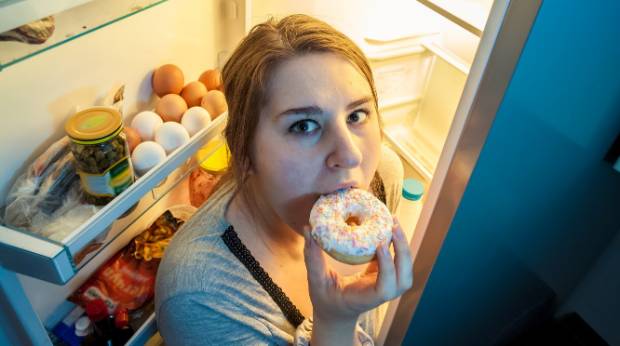“DIETING” IS A LOSING PROPOSITION
BY: FITZ-GEORGE RATTRAY
Quit dieting, but never quit lifestyle change
Let’s just hit the ground running with this. I have failed at dieting all my life, I was not even a successful bad dieter. Many people have been “successful” with diets but repeatedly have put the weight back on. I actually envied those individuals, at least they have a recent memory of being slim. Sure, with following this diet or that, I have dropped 20 or 30 pounds here and there, but then you are over 300 eventually practically 400 that means less than you would like.
But what was going wrong? Self-discipline? Self-control? Laziness? The only real laziness here is with the individuals, food industry, health professionals and societies who promote those as the answers. So, what have I learned and what does work?
Anything you eat is a part of your diet, but here, specifically we are talking about programmes which promise weight loss. Clearly, many people have been helped over the years, where otherwise there may have been no solution.

But imagine for a moment that you have a disease which has a high possibility of crippling or killing you in your lifetime, promising scarring, emotionally, mentally and physically. Then, the only treatment will at best result in a:
- 20% chance of failure within one month
- 25% of failure within three months
- 70% chance of failure within a couple of years
- 95% chance of a long-term average 10% INCREASE
UCLA researchers have found this to be true and there are tens of years of studies resulting in estimates which put these numbers higher.
Diets fail. And you don’t want yourself or a loved one to get caught up in that cycle. Name a diet, any one, unless you consider 5 to 25 per cent a pass, it fails. But why?

WHY DIETS FAIL
For thousands of years, your ancestors ate whatever they could get their hands on. This was their diet. The name of the game was availability and energy, if it kept you alive and gave you a chance to reproduce it was a good diet, even if it caused death by 30, and it often did. Nowadays, there is availability and food energy beyond the wildest dreams of our ancestors. Unfortunately, our brains haven’t adjusted, it still motivates us and rewards us for more and punishes us for less, blinding us to what we are seeing in the mirror and deafening us to the knowledge and experiences which tell us the path cravings will lead us down. We are programmed to be addicts, be it to love, faith, drugs, behaviours or food, addiction, drive and compulsion
SUPER QUICK WEIGHT LOSS
You often get the question “Lost that much? The real thing I want to know is how long it took?” Because of how weight loss programmes are marketed, this is the general view. However as a general rule, the more rapid the weight loss, the more likelihood of a relapse. Your weight loss should be as steady and as physiologically unassuming as your weight gain, not triggering the responses associated with famine.
MINDSET AND STRESS
Not understanding or embracing improvements in your diet will accentuate your brain perceiving the change as famine. Always being stressed over what you cannot have and do will literally slow and stop the fat loss progress. Certainly, the reaction to feeling deprived will even reverse the loss.
DIETS ARE PROMOTED AS WHAT YOU CANNOT EAT, THIS SETS UP A FEEDBACK AGAINST
“When can I eat normally again?” This is a common dieter’s question, obviously a road to disaster. If you are imagining that you need to once again eat a little more of what put you at risk in the first place then, your perspective needs adjusting. It should be more about what you can eat, all the things which will help you and how. What you cannot eat should be a very shortlist. Yes, originally a very tempting list, but still short, and with knowledge and wisdom increasing over time.
DIETING AND BEING THIN IS NOT ALL IT TAKES TO BE HEALTHY, IT IS A COMPONENT
Remember thin does not mean healthy. Sure, it is an indicator but what nutrients you are taking in to keep your daily healing and preventing health issues is much more important than just being thin. Thin people have nutrition related illnesses as well…balance is everything.
NO PREPARATION OR SUPPORT FOR LIVING LEANER
Dieting promotes weight loss, but once attained what next? Many people are happy to hit a goal weight but this goal weight is short-lived.. This is even worse than the lottery winners who go broke because they have no idea how to manage money. Living fit and healthy with your new size and shape has its own challenges, mentally and physically, and without the understanding, support or adherence to a system designed for maintenance, the tendency to regain weight will always be high.
DOABLE FOR LIFE
I have said it before and I’ll say it again, it is okay if the change is challenging. Change is hard, but it must be manageable for life. Maintaining health becomes increasingly more difficult with age: what is the use working so hard to do some unsustainable thing only to abandon it when you need wellness the most. It must be a way of eating which you can maintain for life.
PLACEHOLDERS
So many programmes hook and re-hook people with foods that they know they love, just edging away the caloric deficiency allowing some weight loss. This makes them marketable, giving you what is known as “placeholders”, these offer similar alternatives and flavours to what you are already addicted to. Therefore, naturally, habits and behaviours never change and you revert.
SO WHAT WORKS?
This may seem shocking coming from someone who is a part of a weight loss system. Sure ITK developed and utilises a weight loss algorithm designed specifically to match the weight loss experienced by gastric modification surgery recipients, but the fact is that ITK is rooted in lifestyle eating and activity. Punctuated by a constantly developing two-year maintenance management. ITK would better be called a sustainable weight loss and management system, but who would know what that means?
I can tell you with surety, your best bet of being a truly healthy individual is to have a diet you can live with, one which consistently keeps the potentially damaging refined and processed foods under control and embraces clean protein sources, frequent servings of various vegetables and fruit, sufficient fibre, teas, nuts, legumes, grains, healthy oils and probiotic foods. All prepared cleanly and with flavours you love, eaten at healthy times with good spices and very importantly in proper portions. Have a balance in your physical activities and keep a positive outlook.





